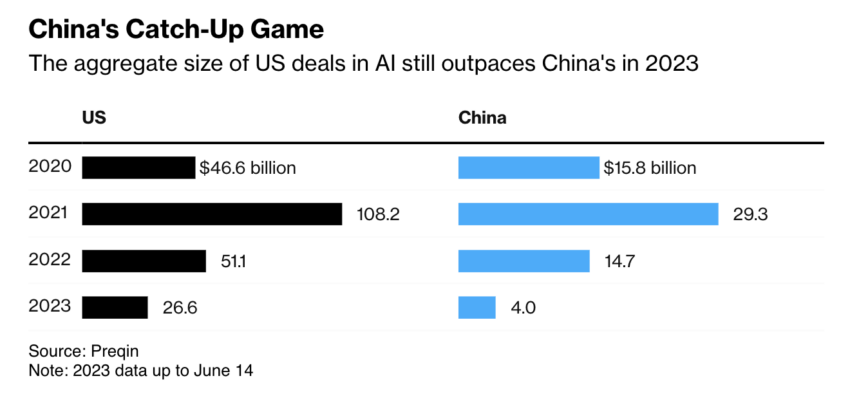Market
US Could Close China’s Last Portal to American AI Chips

[ad_1]
The Biden administration announced a second round of curbs to prevent Chinese companies from accessing artificial intelligence (AI) chips designed in America. The latest round of restrictions could clamp down on a loophole that allows China to obtain American chips from Huaqiangbei in Shenzhen.
A Washington source claimed that, with the new curbs, the US is trying to close a loophole exposed by earlier export restrictions. Last year, the Biden administration announced it would restrict the supply of advanced AI chips it suspected China was using to boost its military efforts.
Expert Affirms Challenges of Absolute Curbs
While it is illegal to export certain chips from the US to mainland China, nothing stops Chinese employees of remote subsidiaries of American companies from accessing those chips, Timothy Fist of the Center for a New American Security affirms.
“Chinese persons can completely legally access the same chips from anywhere in the world. There are no rules about how they can be accessed.”
The US fears China could use these chips to develop unmanned combat systems. It is also working to restrict Chinese access to Amazon Web Services, the largest cloud provider in the world.
Read more: Top 7 Machine Learning Applications in 2023
In August, US President Joe Biden moved to restrict American investment in Chinese endeavors in quantum computing, semiconductors, and artificial intelligence. According to Adam Hickey, a former US Justice Department assistant attorney general, the restrictions are likely to cause American investors to steer clear of other Chinese investments.
“It’s likely to deter investments in those sectors, even beyond what is explicitly prohibited.”
US venture capitalist Sequoia Capital, known for its successful bets in Google and Apple, recently spun off two separate business units to invest in the India-Southeast Asia region and China. It cited rising geopolitical tensions and economic challenges as reasons for the restructure.

China May Be Less Interested in AI Than US Thinks
However, Chinese expertise in solar, car, and medical manufacturing can still present attractive investment opportunities. Despite falling behind in AI design and manufacturing, Chinese companies are still responsible for less-advanced semiconductors, without which production lines in other sectors would grind to a halt.
Furthermore, Chinese laws on AI development suggest its government may not view giving its citizens access to the latest large-language models as a priority. It recently introduced restrictions on the information AI product developers can train their models with.
Models cannot violate users’ privacy or intellectual property rights. They must also not be discriminatory, nor can they espouse non-socialist ideals.
Read more: Best ChatGPT Alternatives You Can Use in 2023
Do you have something to say about US restrictions on the Chinese government using its AI chips or anything else? Please write to us or join the discussion on our Telegram channel. You can also catch us on TikTok, Facebook, or X (Twitter).
Disclaimer
In adherence to the Trust Project guidelines, BeInCrypto is committed to unbiased, transparent reporting. This news article aims to provide accurate, timely information. However, readers are advised to verify facts independently and consult with a professional before making any decisions based on this content.
[ad_2]
Source link







